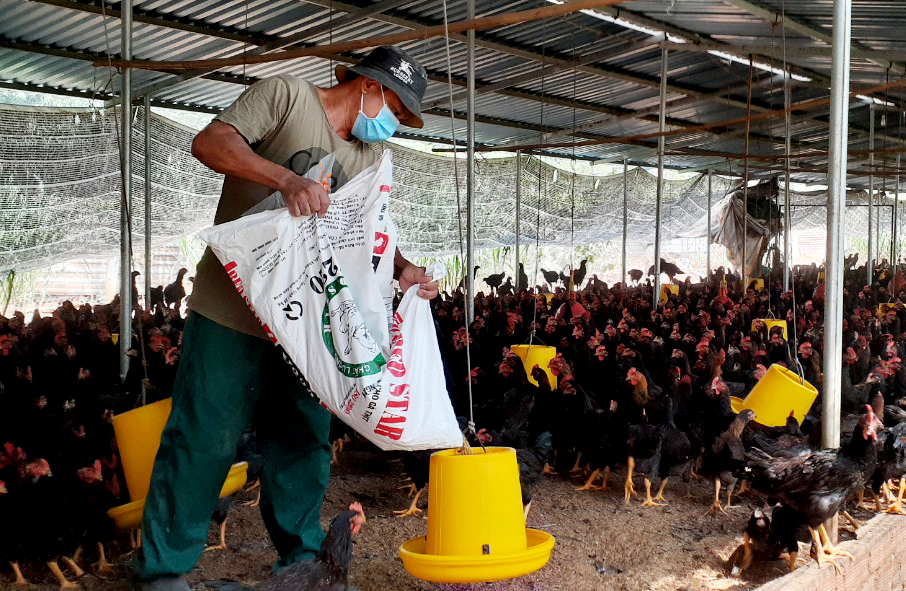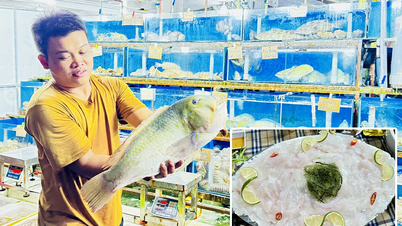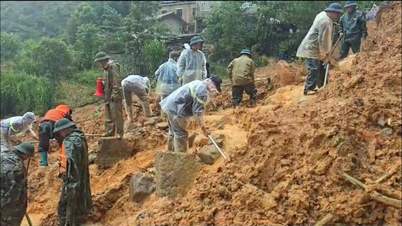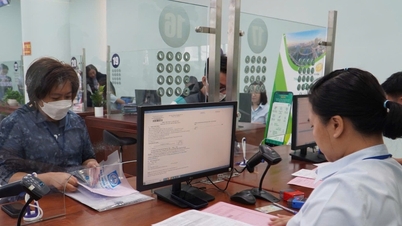At the beginning of the breeding season to serve the Lunar New Year market, in Ba Ria-Vung Tau, the price of chickens dropped sharply, to only about 40,000 VND/kg, lower than the cost of raising them. Therefore, instead of increasing the herd like previous years, many households reduced the scale of raising them, or even stopped raising them.
At the beginning of the breeding season to serve the Lunar New Year market, in Ba Ria-Vung Tau, the price of chickens dropped sharply, to only about 40 thousand VND/kg, lower than the cost of raising them. Therefore, instead of increasing the herd like previous years, many households reduced the scale of raising them, or even stopped raising them.
Reduce the flock, raise chickens sparingly
Last year, from mid-September of the lunar calendar, Mr. Nguyen Van Long's family (Binh Ba commune, Chau Duc district, Ba Ria - Vung Tau province) raised a flock of about 6,000 Minh Du chickens to serve the Tet market. At that time, with a selling price of 65-70 thousand VND/kg, after deducting expenses, he earned a profit of over 200 million VND.
This year is different. Instead of increasing the herd to prepare for the upcoming Lunar New Year 2025 market, he reduced the herd.
Mr. Long sadly said: “From the beginning of the year until now, the price of chicken has continuously dropped sharply, sometimes by half, causing me to suffer losses. Up to this point, the price of chicken has not shown any signs of going up. On average, for every 1,000 chickens, I lose about 15 million VND. Therefore, this Tet season, I will only release about 2,000 chickens, 1/3 compared to last year, and plan to sell them retail because it will be difficult to sell them to traders.”
Like Mr. Long's family, since the beginning of the year, Mr. Nguyen Huu Tuan's family (Binh Ba commune, Chau Duc district) has only been raising pigs sparingly.
Mr. Tuan said that this year the price of chicken is low, while the price of animal feed and input costs are high, so his family will hang up the coop this Tet.
“I plan to sell the chickens I am raising before Tet and then release them after Tet. Hopefully, before Tet, the price of chickens will increase a little, helping me reduce my losses,” said Mr. Tuan.

Farmers in Binh Ba commune (Chau Duc district, Ba Ria-Vung Tau province) take care of Minh Du chickens in the context of decreasing chicken prices in the area.
At this time, Ms. Le Thi Cam Duyen (Hoa Hung commune, Xuyen Moc district, Ba Ria-Vung Tau province) also reduced her total chicken flock by more than 50% compared to before.
According to Ms. Duyen, the last two times she sold chickens, with about 2,500 chickens, she lost nearly 200 million VND. At this time, farmers have released the Tet chicken batch, but Ms. Duyen is still worried about the price and output for the Tet market.
“The output of our chicken is very unstable. When the price is high, traders come to the farm to buy a lot, but when the market is slow and the price is low, it is very difficult to find buyers.
With the current volatile market situation, plus the heavy losses in the last two batches, I don’t know what to expect this Tet season, so I have proactively reduced the herd and raised chickens sparingly. I hope the price of Tet chickens will increase so that farmers have capital and motivation for the next crop,” said Ms. Duyen.
Chain links for stability
According to the agricultural sector, recently, chicken farms and households have had to bear losses because the selling price of chickens is often lower than the production cost.
Therefore, many farms and households have reduced production. This year, during Tet, households have not expanded their scale because of concerns about output risks.
Up to this point, the whole province has a total poultry flock of 6.87 million, an increase of 3.8% over the same period, of which 1/3 of the total flock serves Tet.
In recent years, chicken consumption during Tet has not increased much compared to normal days, so when prices are low, the agricultural sector recommends that farmers calculate the scale and market demand to restock appropriately.
During the raising process, farmers need to strengthen disease prevention such as: vaccinating poultry, disinfecting, sterilizing, and cleaning barns to reduce the risk of disease outbreaks in poultry flocks.
At the same time, gradually shift from small-scale farming to biosafety farming to increase product value and link the chain to stabilize prices and output.
Source: https://danviet.vn/ga-ta-con-vat-nuoi-chu-luc-o-ba-ria-vung-tau-bat-ngo-giam-gia-nong-dan-de-chung-tai-dan-mua-tet-2024111622473126.htm




































![[Photo] President of the Cuban National Assembly visits President Ho Chi Minh's Mausoleum](https://vphoto.vietnam.vn/thumb/1200x675/vietnam/resource/IMAGE/2025/10/1/39f1142310fc4dae9e3de4fcc9ac2ed0)
![[Photo] Keep your warehouse safe in all situations](https://vphoto.vietnam.vn/thumb/1200x675/vietnam/resource/IMAGE/2025/10/1/3eb4eceafe68497989865e7faa4e4d0e)






























































Comment (0)